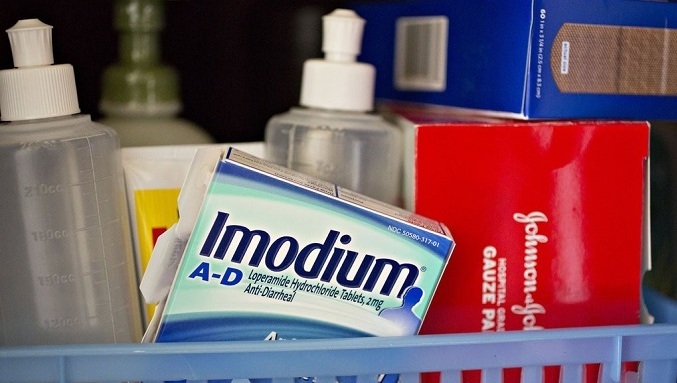Research In Action
Research In Action
Breadcrumb

Coined as “poor man’s methadone,” abuse of loperamide, an anti-diarrhea medication available over-the-counter under the brand name Imodium®, is becoming a growing problem. Although loperamide is safe and effective when used as directed, the medication in large amounts can cross into the brain, cause the effects of opioids, and can lead to serious cardiac events, specifically heart rhythm disturbances that can lead to severe medical outcomes, including death.
Loperamide, when used therapeutically to treat diarrhea, is dosed in one to two pills. However, when used to get high or to curb opioid withdrawal symptoms, it is typically consumed in very large amounts, ranging from 50 to 100+ capsules. The medication actually works like an opioid and is 40 to 50 times more potent than morphine in the gut. However, since absorption from the gut is poor, very little of the drug crosses into the brain through the blood-brain barrier at normal doses, which is why it takes large amounts to induce a high.
Raising Awareness of a Public Health Problem
As the Managing Director of the Poison Control Center at CHOP, I recently shared a summary of data from the PA Poison Center Network’s experience of loperamide exposures from January 1, 2017 to December 31, 2018 with members of the Pennsylvania Opioid Task Force. This task force, along with our other public health and DEA partners, is working to raise awareness of the problem with healthcare providers, pharmacists, and families.
Although the data from the PA Poison Center Network, which included cases reported from the entire state of PA and Delaware, showed a decrease in reports of intentional loperamide exposures from 2017 to 2018, the problem is far from over. The regional Poison Control Center at CHOP has reported more cases of intentional exposures to loperamide in 2018 than what were reported to all US poison centers in 2013.
Loperamide will not appear in a standard toxicology screen, and there is no urine test to screen for it. There also currently is no screening tool specifically for loperamide abuse, but screening tools for substance abuse disorder (SUD) are available from the Substance Abuse and Mental Health Services Administration’s Center for Integrated Health Solutions.
Prevention is Key
Since there are currently no treatment protocols for loperamide abuse or toxicity, prevention is key. This includes early detection and connection to treatment and resources for those suffering with opioid substance use disorder. Pediatric healthcare professionals must be made aware of the problem and address it appropriately with patients who may be abusing or may be at risk for abusing the medication:
- Know the signs of loperamide abuse or toxicity:
- fainting
- gastrointestional complications (nausea, vomiting, constipation, paralyzed intestine)
- unresponsiveness
- EKG changes such as QT interval prolongation
- ventricular (heart) arrhythmias
- cardiac arrest
- Ask the right questions if abuse or misuse is suspected:
- In addition to standard screening tools, consider non-traditional drugs of abuse, such as loperamide. For example: Have you ever taken an over-the-counter medication to get high? If so, which one, how much, and how often?
- Are you aware of the severe heart risks associated with overuse, misuse, and abuse of loperamide?
- To family members: Have you observed any unusual behavior, including large purchases of loperamide and evidence of packaging found in the trash?
- Provide support and education:
- Share this fact sheet from the Consumer Healthcare Products Association (CHPA) about the risks of misuse and abuse
- Offer a referral to an appropriate source of treatment for substance use disorder
Abuse deterrent strategies, including restricting packaging sizes, blister packs, and behind the counter dispensing, should also be considered. Families should also be made aware of loperamide misuse and abuse and how to prevent it.
If you have any questions about suspected loperamide abuse, call the experts at the Poison Control Center at CHOP at 1-800-222-1222. Information and treatment guidance are offered to the public and healthcare professionals, 24/7, at no charge. Visit our website for more information.

